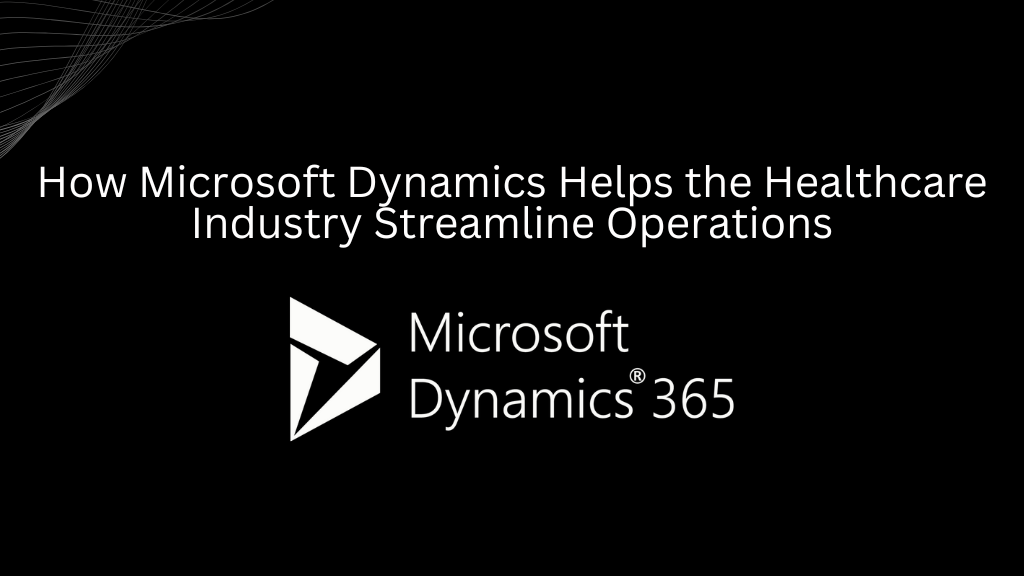Modern healthcare is a fast-paced industry, where efficiency and accuracy are key to providing quality patient care and improving operational performance. The integration of advanced technologies, such as Microsoft Dynamics, has become a game-changer for healthcare organizations seeking to streamline their operations and enhance service delivery. This blog will explore how Microsoft Dynamics helps healthcare providers optimize their processes, improve decision-making, and boost overall productivity.
What is Microsoft Dynamics?
Microsoft Dynamics 365 is a suite of business applications that combine customer relationship management (CRM) and enterprise resource planning (ERP). These applications help organizations manage various functions like finance, operations, supply chain, sales, marketing, and more. With its flexible cloud-based solutions, Microsoft Dynamics empowers businesses to run operations more efficiently and make data-driven decisions.
Key Ways Microsoft Dynamics Helps Healthcare Organizations
1. Streamlining Patient Management
One of the most significant challenges in healthcare is managing patient data effectively. Microsoft Dynamics CRM provides healthcare providers with a unified platform to manage patient information, from initial contact through to follow-up care. It enables seamless tracking of appointments, patient histories, treatments, and billing, all in one place.
By centralizing patient information, healthcare organizations can ensure better communication between departments, reduce errors, and offer a more personalized care experience. Additionally, staff can easily access and update patient records, improving the overall workflow and patient satisfaction.
2. Improving Financial Management
In healthcare, managing finances efficiently is crucial for sustainability. Microsoft Dynamics 365 helps healthcare providers handle financial management by automating invoicing, billing, and payment processes. It also provides powerful tools for budgeting, financial reporting, and compliance, ensuring that organizations meet regulatory standards like HIPAA (Health Insurance Portability and Accountability Act).
The software integrates with existing healthcare systems to streamline billing processes and ensure accuracy in payments and reimbursements. This reduces administrative overhead and helps organizations allocate resources more effectively.
3. Enhancing Supply Chain Management
Managing medical supplies and equipment can be complex, especially for large hospitals and healthcare networks. Microsoft Dynamics provides robust supply chain management (SCM) tools to monitor and manage inventory in real-time. Healthcare organizations can track the availability of medications, surgical tools, and other critical supplies to prevent shortages and ensure patient care is never compromised.
The ERP capabilities of Microsoft Dynamics also allow healthcare providers to optimize procurement processes, automate ordering, and manage vendor relationships efficiently. This streamlines supply chain operations, reduces costs, and enhances patient care.
4. Optimizing Human Resources and Workforce Management
Healthcare organizations often face challenges in managing staff schedules, workloads, and payroll. With Microsoft Dynamics, HR departments can automate employee scheduling, track working hours, and manage payroll seamlessly. The software provides a comprehensive view of staffing needs, helping healthcare managers ensure adequate staffing levels and reduce workforce-related issues.
Additionally, Microsoft Dynamics can help HR teams track certifications, training programs, and compliance requirements, ensuring healthcare professionals meet industry standards and regulations.
5. Data-Driven Insights for Better Decision Making
Data-driven decision-making is essential in the healthcare industry for improving patient outcomes and operational efficiency. Microsoft Dynamics integrates with business intelligence (BI) tools to provide real-time insights into various aspects of healthcare operations, including patient care, financial performance, and supply chain effectiveness.
Healthcare providers can use these insights to make informed decisions, identify areas for improvement, and implement evidence-based practices that lead to better outcomes for both patients and the organization. With comprehensive analytics and reporting features, Microsoft Dynamics enables healthcare professionals to assess performance across different departments and optimize their operations.
How Microsoft Dynamics Enhances Healthcare Compliance
Compliance with healthcare regulations is a top priority for any organization in the industry. Microsoft Dynamics 365 offers built-in features to help healthcare providers comply with various legal and regulatory requirements. The software ensures that all patient data is secure, and it helps organizations track and manage compliance documentation related to healthcare standards.
By integrating compliance features into daily operations, Microsoft Dynamics makes it easier for healthcare providers to stay updated with changes in regulations and maintain a secure and compliant environment for patients and staff.
Why Choose Microsoft Dynamics for Healthcare?
- Customization and Flexibility: Microsoft Dynamics 365 is highly customizable to meet the specific needs of healthcare organizations, whether you’re a small clinic or a large hospital network.
- Cloud-based and Scalable: Being a cloud-based solution, it offers flexibility in terms of access and scalability, making it ideal for healthcare providers of all sizes.
- Integration with Existing Systems: Microsoft Dynamics integrates seamlessly with existing healthcare systems, enabling better coordination across departments and improving overall operations.
Conclusion
In conclusion, Microsoft Dynamics is transforming the healthcare industry by streamlining operations, improving financial management, and enhancing patient care. By leveraging the power of automation, data analytics, and real-time insights, healthcare organizations can improve operational efficiency, reduce costs, and deliver better outcomes for patients. With its flexibility, scalability, and integration capabilities, Microsoft Dynamics is undoubtedly an essential tool for healthcare providers looking to optimize their operations.
About 3techno
At 3techno, we specialize in providing ERP solutions and digital transformation services tailored to the specific needs of businesses, including the healthcare sector. With our expertise in Microsoft Dynamics, we help organizations seamlessly integrate technology into their operations, improving efficiency, compliance, and decision-making. Whether you’re looking to implement Microsoft Dynamics 365 or need assistance with ERP integration, 3techno is here to help you achieve operational excellence.
Let us guide you through the journey of optimizing your healthcare operations with Microsoft Dynamics. Contact us today to learn more about how we can help your organization thrive in a digitally-driven world.

